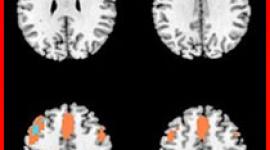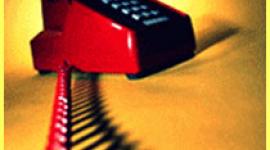Ten Things That Drive Psychiatrists To Distraction
What Psychiatrists Hate: (A Unique Poll)
Among these: Ritual abuse legends, Multiple Personality theory, Repressed memories of childhood sexual abuse trauma, The APA's DSM IV, Psychodynamics, Psychoanalysis, Shock treatment, Freud, Laing, Frontal lobotomy, anal personality tests.
THE INDEPENDENT (London)
March 19, 2001, Monday; Pg. 5
BY Jeremy Laurance Health Editor
 DOCTORS TEND to bury their mistakes but a group of the world's leading psychiatrists has chosen to dig them up and put them on display - in the hope of avoiding similar mistakes in the future.
DOCTORS TEND to bury their mistakes but a group of the world's leading psychiatrists has chosen to dig them up and put them on display - in the hope of avoiding similar mistakes in the future.
A unique poll of 200 specialists in mental health from around the globe has produced a selection of the worst publications in the history of their discipline.
The results of the poll, carried out on the eve of the millennium 14 months ago, have been seen by The Independent. They show a psychiatric profession at the start of the 21st century throwing off the shackles of the past and dismissing some of the greatest names of the last century.
Among the nominations for the worst research paper ever published were: Sigmund Freud, father of psychoanalysis, nominated for his complete works; R D Laing, leader of the 1960s anti-psychiatry movement, nominated for The Divided Self; and Egaz Moniz, inventor of psychosurgery (the frontal lobotomy) and one of only two psychiatrists to win the Nobel prize.
The exercise, to mark the millennium, was partly tongue in cheek but partly intended to highlight where psychiatry had almost run off the rails. It shows psychiatrists dismissing the "shock 'em and slice 'em" brigade as well as challenging the psychoanalytic movement.
"They show we are ruthless iconoclasts," said Simon Wessely, professor of psychiatry at King's College and the Maudsley Hospitals, south London, and organiser of the poll.
The poll was followed by a meeting held at the Maudsley hospital attended by 150 psychiatrists at which a votes were cast to decide the ten worst papers of the millennium from over 100 nominations. The inclusion of Freud in the final list, at number six, was "slightly tongue in cheek" but also reflected the widespread view that despite having a major literary and cultural impact he had done nothing for patients, Professor Wessely said.
R D Laing, the charismatic and influential psychiatrist who argued in the 1960s that it was not schizophrenics who were mad but society, was included for the harm his misguided theories had wreaked. "It was bad enough for parents having a child who was schizophrenic but being told it was their fault was even worse. It is true parents can influence the outcome of the illness but no one now thinks they are the cause," Professor Wessely said.
Egaz Moniz, the most nominated individual in the poll, was shot dead by a disgruntled patient. The surgery he invented turned people into automatons and is now rarely performed. After winning the Nobel prize in 1949, he went on to write a history of playing cards.
Professor Wessely said that the selection was "utterly unscientific" and that nominations from the Nazi era were excluded because they would have swept the board. Despite that, research carried out in the name of psychiatry over the last century reached in some cases bizarre and disturbing limits.
The accolade of worst research paper went to a brutal experiment carried out in the early 1940s. Scientists stopped the blood flow to the brain in 100 prisoners and 11 chronic schizophrenics by pressing the carotid artery in their necks - to see what effect it would have.
They measured the time before the unfortunate subjects lost consciousness and started fitting, observing in a paper published in Archives of Neurology and Psychiatry in 1943 that "no significant improvement in the psychiatric status of the schizophrenia patients was noted after repeated and relatively prolonged periods of arrest of cerebral circulation."
Professor Wessely said: "Wasn't that a surprise? It was a worthy winner."
THE TEN WORST PUBLICATIONS IN THE HISTORY OF PSYCHIATRY
-
Ralph Rossen: Acute arrest of cerebral circulation in man,1943. An extreme experiment involving almost strangling 100 prisoners and 11 chronic schizophrenics to test the effects of stopping blood flow to the brain. Scientifically dubious and ethically beyond the pale.
-
Valerie Sinason: Treating the Survivors of Satanic Abuse, 1994. Reopened controversy about ritual abuse of children. "Credulous, superstitious, iatrogenic illness-inducing , self-righteous, incendiary garbage," a nomination read.
-
Luke Warm Luke homicide inquiry, 1998: Inquiry into the killing of Susan Crawford, above, a mother of four and girlfriend of a schizophrenic patient, Michael Folkes, who stabbed her 70 times (he had changed his name to Luke Warm Luke). The high point of the blame culture and the stigmatisation of schizophrenics as random murderers. One psychiatrist said: "It implied that whenever anything bad happened it was somebody's fault and these very rare events can be prevented. But they can't."
-
Rosenwald G C et al: "An action test of hypotheses concerning anal personality", Journal of Abnormal Psychology, 1966. Subjects put hands in tubs of soil and slime; speed of action equated to personality. A psychiatrist said: "Shows how silly highly educated people can be."
-
Henry Miller: "Accident compensation neurosis", BMJ, 1961. Argued that people seeking compensation got better as soon as it was paid - shown since by much other research to be wrong. Hugely influential and still cited by neurologists in court cases.
-
The complete works of Sigmund Freud: 1880-1930. Nomination said: "His teaching led to the great psychodynamic movement with its tribalism and hostility to other models of mental illness and treatments. From this root we could select the mish-mash of persons excited about multiple personality disorders, sexual trauma in infancy and other nonsense."
-
Egaz Moniz: Invention of psychosurgery. Portuguese diplomat, present at the First World War armistice, introduced the idea of brain surgery - the lobotomy - to cure mental disorder. A nomination read: "His efforts were useless; his work should have died an aborted death."
-
William Sargeant and Elliott Slater: An Introduction to Physical Treatments in Psychiatry, 1946. Advocated shock treatment, psychosurgery, and more. "Epitome of the mindless period of psychiatry during and after the war."
-
RD Laing: The Divided Self, 1960. Argued that it was not schizophrenics who were mad but society, and the cause lay within the family. "Hugely influential among the chattering classes": "Arrogant, infuriating, confusing philosophy for psychiatry... just plain wrong."
-
DSM-IV - Diagnostic and Statistical Manual: (4th ed). Containing every psychiatric diagnosis, it is criticised for reducing psychiatry to a checklist. "If you are not in DSM-IV, you are not ill. It has become a monster, out of control."
next: Testimony of Anne Krauss
~ all Shocked! ECT articles
~ depression library articles
~ all articles on depression
APA Reference
Staff, H.
(2007, February 18). Ten Things That Drive Psychiatrists To Distraction, HealthyPlace. Retrieved
on 2025, December 28 from https://www.healthyplace.com/depression/articles/ten-things-that-drive-psychiatrists-to-distraction



